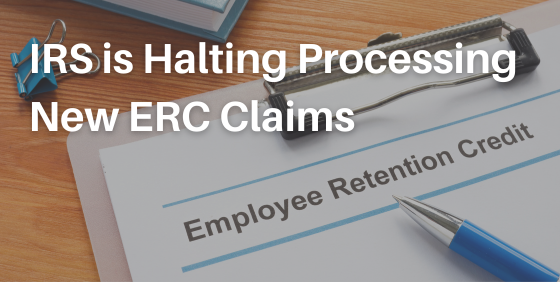
The IRS announced that it has stopped processing all new Employee Retention Credit (ERC) refund claims and will continue its moratorium at least through December 31, 2023. (IR-2023-169)
In IRS Commissioner Werfel’s words:
“The IRS is increasingly alarmed about honest small business owners being scammed by unscrupulous actors, and we could no longer tolerate growing evidence of questionable claims pouring in… The continued aggressive marketing of these schemes is harming well-meaning businesses and delaying the payment of legitimate claims, which makes it harder to run the rest of the tax system.”
The IRS is continuing to process ERC claims filed prior to the 09/14/2023 announcement, but even those claims will face long processing delays (up to 180 days from 90 days) because the IRS is placing stricter compliance reviews on all claims. The IRS is developing a new settlement program for taxpayers who received an improper ERC payment that should be available later in Fall 2023.
The IRS’s release is available HERE and contains advice for taxpayers whose ERC claims may be in various stages.
Receive Free financial tips & Tax Alerts!
"*" indicates required fields
Saving for retirement is a crucial financial goal and a 401(k) plan is one of the most effective tools for achieving it. If your employer offers a 401(k) or Roth…
An advance health care directive allows you to communicate your preferences, in advance, for medical care in the event you become incapacitated. Often part of a comprehensive estate plan, these…
When considering the advantages of U.S. Treasury savings bonds, you may appreciate their relative safety, simplicity and government backing. However, like all interest-bearing investments, savings bonds come with tax implications…